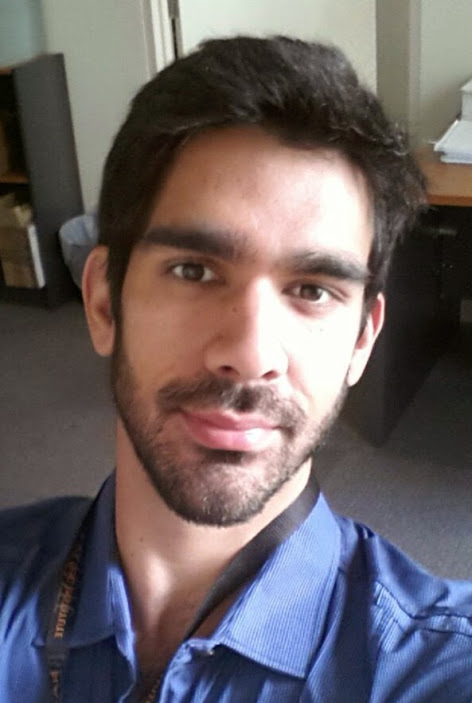
My Expertise
Non-invasive brain stimulation, including transcranial magnetic stimulation (TMS) and transcranial direct current stimulation (tDCS).
Cognitive electrophysiology, referring to analyses of brain activity obtained using electroencephalography (EEG) during a cognitive task. My specialty is within working memory and other higher-order executive functions.
Biological treatments of depression (e.g., ketamine), including phase II/III trials to investigate efficacy and/or effectiveness.
Keywords
Fields of Research (FoR)
Biological Psychology (Neuropsychology, Psychopharmacology, Physiological Psychology), Neurocognitive Patterns and Neural Networks, Psychiatry (incl. Psychotherapy), NeurosciencesBiography
I am currently a Neuroscience Fellow based at the Black Dog Institute. As a neuroscientist and clinical researcher, I focus on understanding how depression affects brain activity to help develop new treatments and to improve existing treatments. I have three broad interests: Developing new treatments for depression, such as non-invasive brain stimulation, ketamine, and psilocybin; Understanding and improving cognition through the use of brain...view more
I am currently a Neuroscience Fellow based at the Black Dog Institute. As a neuroscientist and clinical researcher, I focus on understanding how depression affects brain activity to help develop new treatments and to improve existing treatments. I have three broad interests: Developing new treatments for depression, such as non-invasive brain stimulation, ketamine, and psilocybin; Understanding and improving cognition through the use of brain stimulation and cognitive electrophysiology (i.e., using electroencephalography; EEG); Using EEG techniques to gain deeper insights into the pathophysiology of clinical disorders such as depression.
My Grants
Margaret Castronova Fellowship Phase 2 (2024 – 2025) to optimise non-invasive brain stimulation techniques and investigate real-time EEG neurofeedback to reduce default mode network connectivity associated with rumination as a novel treatment for depression. AUD $320,000
Medical Research Future Fund Grant (2024 – 2027). CID for a study investigating the comparative effectiveness of ketamine and esketamine in treatment resistant depression. AUD $3,000,000
UNSW Discipline of Psychiatry and Mental Health Career Development Seed Grant for EMCRs (2022). Seed funding used to support investigations on the use of EEG to optimise dosing for prefrontal TMS. AUD $8,000
Margaret Castronova Fellowship Phase 1 (2022 – 2023) to improve dosing of transcranial magnetic stimulation (TMS) and transcranial direct current stimulation (tDCS) using EEG-based methods. AUD $320,000
UNSW High Value Data Collection (2019) to make a rich dataset publicly available. The dataset consisted of concurrent TMS-EEG and MRI recordings from 24 participants with 5 sessions each. AUD $5,100
My Qualifications
PhD (Psychiatry, University of New South Wales, 2019)
MComm (International Business, University of New South Wales, 2010)
BSc (Physics & Psychology, University of New South Wales, 2008)
My Research Activities
My research focuses on developing novel therapeutic approaches for treatment-resistant depression, and better understanding the causes of depression so we can personalise treatments. To achieve this, I use several approaches. These include cognitive electrophysiology to improve therapeutic interventions such as non-invasive brain stimulation, and to develop new ones such as real-time EEG neurofeedback to reduce rumination; meta-analytic techniques to understand existing treatments and how these can be put to better use; and clinical trial research, including recent investigations of exciting new drugs such as ketamine and psilocybin. The findings from this body of research are translated into the clinics we operate at the Black Dog Institute, into the clinical trials we run, and into the courses we teach.
My Research Supervision
Supervision keywords
Areas of supervision
I am available to supervise Higher Degree Research (HDR) candidates, including for PhD programs. I have projects related to real-time EEG-based neurofeedback techniques to reduce depressive symptoms and improve working memory; and developing a new method to understand the brain activity associated with cognition using neuroimaging techniques.
If you are interested in undertaking a PhD here at UNSW, please send me an email with your current CV and academic transcript.
Currently supervising
- Exploring alternative cortical targets to improve cognition using repetitive transcranial magnetic stimulation (rTMS)
- Investigating how the right inferior frontal cortex (rIFC) and pre-supplementary motor area (pre-SMA) subserve response inhibition
- Developing EEG-based methods to determine dosage, placement, and timing of repetitive transcranial magnetic stimulation (rTMS)
- Investigating the brain activity underlying the n-back working memory task
- Developing a standardised EEG-based test of emotional processing
- Use of real-time EEG-based neurofeedback to disrupt the default mode network (DMN) and improve working memory
My Teaching
Since 2015 I have been lecturing and delivering workshops on the use of brain stimulation, including transcranial magnetic stimulation (TMS) and transcranial direct current stimulation tDCS), as part of the Sydney Neurostimulation Centre TMS and tDCS Courses. I also provide on-site practical training and credentialing on the safe and effective delivery of repetitive TMS for the treatment of depression.